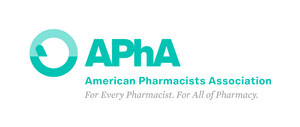WASHINGTON, Nov. 15, 2010 /PRNewswire-USNewswire/ -- As the holiday season approaches, schedules become full of seasonal and familial activities and disruptions to our daily routines become the norm. Our health care habits, including medication regimens, sometimes take a back seat. The American Pharmacists Association encourages consumers to have a conversation with their pharmacist regarding their medication use while traveling, to ensure the proper usage, storage and effectiveness of all medications. Here are some tips you should know before you go:
(Logo: http://photos.prnewswire.com/prnh/20100820/APHALOGO-a)
(Logo: http://www.newscom.com/cgi-bin/prnh/20100820/APHALOGO-a)
- Ensure you store medications correctly and pack ample medication and equipment. Some medications, such as insulin for diabetes, require the medication to be kept cool. If you plan to be in the car for a long period of time, insulin may need to be in a cooler, but not directly in contact with ice. Some medications may require certain equipment such as needles or pumps, so be sure to remember all the prescribed parts of your routine. Talk to your pharmacist about how to best store your medications and supplies for long travels.
- Bring more medication than you expect to use and store your medications in their original labeled containers. Extended stays can upset your medication regimen. Talk to your pharmacist about the possibility of and how to best obtain a "vacation supply" of medication from your insurance company, he/she may be able to help. Being prepared helps ensure safe and effective medication use.
- Beware of "Drugged Driving." Certain medications can impair perception, judgment and reaction times causing a hazardous driving situation. Talk with your pharmacist about side effects your medication may cause and whether you can adjust your dosing schedule to avoid times you may need to operate a vehicle.
- Carry an updated personal medication and vaccination record with you. This is a list of your prescription, over-the-counter and herbal medications, how you take them, and why—a good resource to have on hand when you visit any healthcare provider or see your pharmacist. This list should also contain an up-to-date history of your vaccinations. If you are unexpectedly admitted into a hospital, or must see a healthcare provider while traveling, the list can help them understand your current treatments. To download a personal medication list, www.pharmacist.com/pmr.
- Have a plan for adjusting your medication regimen. Travel may require you to adjust your medication regimen, or when you take your medication, for time and routine changes. If you are traveling across the country and would normally take a medication twice a day, for example, you may need to adjust that schedule to take your medications approximately twelve hours apart—which may be earlier or later than your first bedtime or morning on another coast. Ask your pharmacist about how to alter your schedule to fit your health-care needs.
- Keep your medications in your carry-on bag. While many items can be replaced easily, replacing medications can be challenging. Keeping your medications with you ensures immediate access in case of an unexpected event like lost or stolen luggage. Check with your airline or TSA for the forms of medications you can take: liquids in certain quantities may be prohibited on airplanes. Remember, you can always ask your pharmacist about pouring liquid medication into smaller bottles for your travel.
- Be careful or avoid drinking alcohol, especially when flying or visiting cities in higher altitudes. Alcohol can interact with many prescription and over-the-counter medicines.
- Ask your pharmacist if there are any foods or beverages that conflict with your medicines. You may be more inclined to eat unfamiliar foods when traveling to new cities or foreign countries.
- Practice good hygiene, get rest and eat well. Frequent hand-washing/cleansing and coughing /sneezing within your sleeve or a tissue will protect you and others. In addition, try not to overdo it and not get run down, eat right and drink plenty of water (and depending upon the location you may need to use bottled water) are good practices that can reduce your risk of getting sick.
About the American Pharmacists Association
The American Pharmacists Association, founded in 1852 as the American Pharmaceutical Association, represents more than 62,000 practicing pharmacists, pharmaceutical scientists, student pharmacists, pharmacy technicians, and others interested in advancing the profession. APhA, dedicated to helping all pharmacists improve medication use and advance patient care, is the first-established and largest association of pharmacists in the United States.
SOURCE American Pharmacists Association
WANT YOUR COMPANY'S NEWS FEATURED ON PRNEWSWIRE.COM?
Newsrooms &
Influencers
Digital Media
Outlets
Journalists
Opted In






Share this article